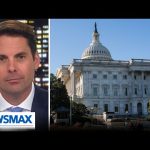Americans woke this week to a maddening pattern: NASA has been slow to release full images and raw data of a strange interstellar visitor, known as 3I/ATLAS, as it skirts the inner solar system near the sun. That delay has only fanned the flames of suspicion among citizens who rightly demand transparency from agencies that operate with taxpayer dollars and national-security implications.
Harvard physicist Dr. Avi Loeb — not some fringe pundit but a decorated scientist willing to speak uncomfortable truths — told listeners on Finnerty that the object’s behavior is anomalous enough to entertain the idea of a “mothership” releasing smaller probes near the sun. His bluntness should be applauded, not smeared; when seasoned researchers raise legitimate questions, bureaucracies should answer them promptly instead of hiding behind jargon.
This is not ancient history: 3I/ATLAS was first spotted on July 1, 2025, and is on a hyperbolic trajectory that will carry it past the sun and back into interstellar space, with peak solar approach in late October 2025. Scientists have been scrambling to study its unusual composition and trajectory, and every missing image or delayed data release deprives the public and policymakers of critical information.
The object’s close brush with Mars in early October was a golden observational opportunity, yet high-resolution pictures from orbiters and rovers have not been made widely available, reportedly slowed by processing, bureaucracy, and even temporary funding lapses. Citizens should be skeptical of the convenient silence from establishment institutions; “we’ll release it when it’s ready” is not a satisfactory answer when potential foreign-made technology or unknown materials are involved.
Let’s call this what it is: an agency culture that prizes control and polished narratives over raw transparency. Calibration and validation take time sometimes, but the pattern of delays invites suspicion, and in an era of geopolitical tension we cannot afford to assume benign intent from those who would withhold information.
This is why Congress must act now to demand the raw telemetry and unprocessed imagery be released to independent scientists and relevant oversight committees. If domestic political paralysis can stall release of space data, imagine the consequences if foreign powers reach conclusions first or if something important is quietly sequestered; elected officials should subpoena answers and deploy every capable asset — from planetary probes to classified sensors — to get to the bottom of it.
Dr. Loeb deserves credit for refusing to accept the comfortable consensus that everything is normal; his willingness to ask uncomfortable questions is precisely the kind of skepticism that has pushed American science forward. Conservatives who value transparency and national security should stand with independent thinkers who press institutions to show their work rather than bowing to the latest institutional line.
The people funding these agencies have a right to know what’s flying through our neighborhood of space, and patriotic Americans should demand no less than an immediate, full accounting. Call your representatives, insist on hearings, and refuse to be lulled by soothing press releases — accountability, not secrecy, keeps our nation safe and our science honest.




